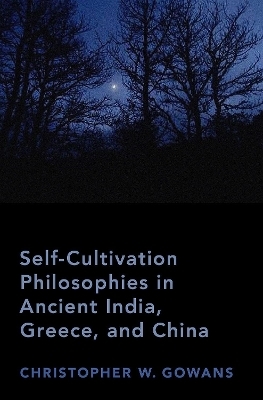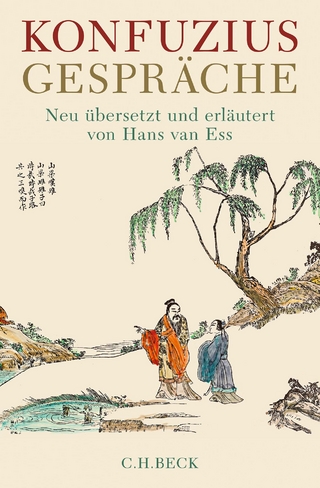
Self-Cultivation Philosophies in Ancient India, Greece, and China
Oxford University Press Inc (Verlag)
978-0-19-094102-4 (ISBN)
Self-cultivation philosophies put forward a program of development for ameliorating the lives of human beings. On the basis of an account of human nature and the place of human beings in the world, they claim that our lives can be substantially transformed from what is thought to be a problematic condition into what purports to be an ideal state of being. Self-cultivation philosophies are preeminently practical in their aspirations: their purpose is to change human life in fundamental ways. Yet, in pursuing these practical ends, these philosophies typically make significant theoretical as well as empirical claims about human nature and the world.
The book shows how the concept of self-cultivation philosophy provides an interpretive framework for understanding, comparing, assessing and learning from several philosophical outlooks in India, the Greco-Roman world, and China. The self-cultivation philosophies in India are those expressed in: the Bhagavad Gita; the Samkhya and Yoga philosophies of Isvarakrsna and Patanjali; and the teaching of the Buddha and his followers Buddhaghosa and Santideva. The philosophies originating in Greece, with subsequent development in the Roman world, are the most prominent Hellenistic approaches: the Epicureanism of Epicurus, Lucretius, and Philodemus; the Stoicism of Chrysippus, Epictetus, and Seneca; and Pyrrho and the Pyrrhonism of Sextus Empiricus. The self-cultivation philosophies from China are the early Confucian outlooks of Confucius, Mencius, and Xunzi; the classical Daoist perspectives of the Daodejing and the Zhuangzi; and the Chan tradition of Bodhidharma, Huineng and Linji. Though these philosophies developed in very different traditions, Gowans shows the connections between them in this compelling work of comparative philosophy.
Christopher W. Gowans is Professor of Philosophy at Fordham University, where he has served as Chair of the Philosophy Department. He works in moral philosophy, with interests in the implications of moral diversity and moral conflicts as well as ancient philosophical traditions in various cultures, especially Buddhism. He is the editor of Moral Dilemmas (Oxford University Press, 1987) and author of Innocence Lost: An Examination of Inescapable Moral Wrongdoing (Oxford University Press, 1994). In more recent years, he has written Philosophy of the Buddha (2003) and Buddhist Moral Philosophy: An Introduction (2014), both for Routledge.
Preface
Abbreviations
Chapter 1: What are Self-Cultivation Philosophies?
Part One: India
Chapter 2: The Bhagavad Gita
Chapter 3. Samkhya and Yoga
Chapter 4: Indian Buddhism
Part Two: Greece and Rome
Chapter 5: Epicureanism
Chapter 6: Stoicism
Chapter 7: Pyrrho and Pyrrhonism
Part Three: China
Chapter 8: Classical Confucianism
Chapter 9: Classical Daoism
Chapter 10: Chan Buddhism
| Erscheinungsdatum | 13.09.2021 |
|---|---|
| Verlagsort | New York |
| Sprache | englisch |
| Maße | 165 x 244 mm |
| Gewicht | 658 g |
| Themenwelt | Geisteswissenschaften ► Philosophie ► Östliche Philosophie |
| Geisteswissenschaften ► Philosophie ► Philosophie Altertum / Antike | |
| ISBN-10 | 0-19-094102-2 / 0190941022 |
| ISBN-13 | 978-0-19-094102-4 / 9780190941024 |
| Zustand | Neuware |
| Haben Sie eine Frage zum Produkt? |
aus dem Bereich


